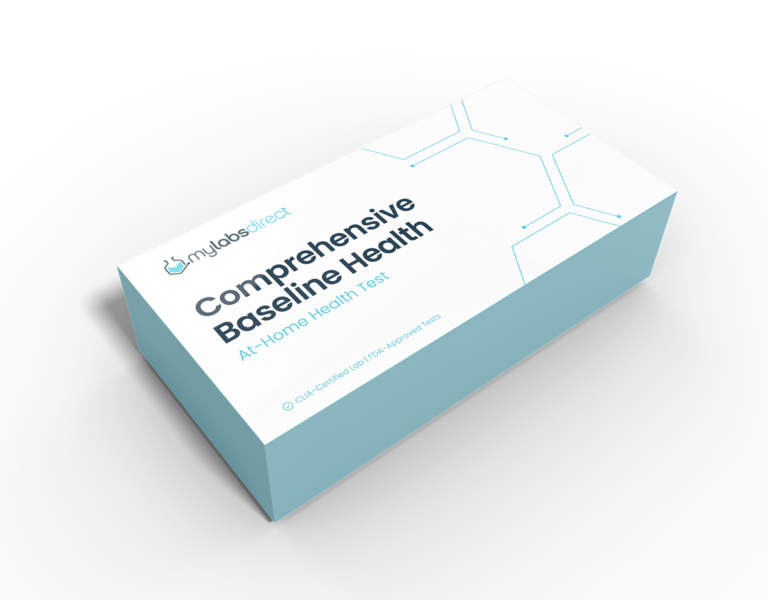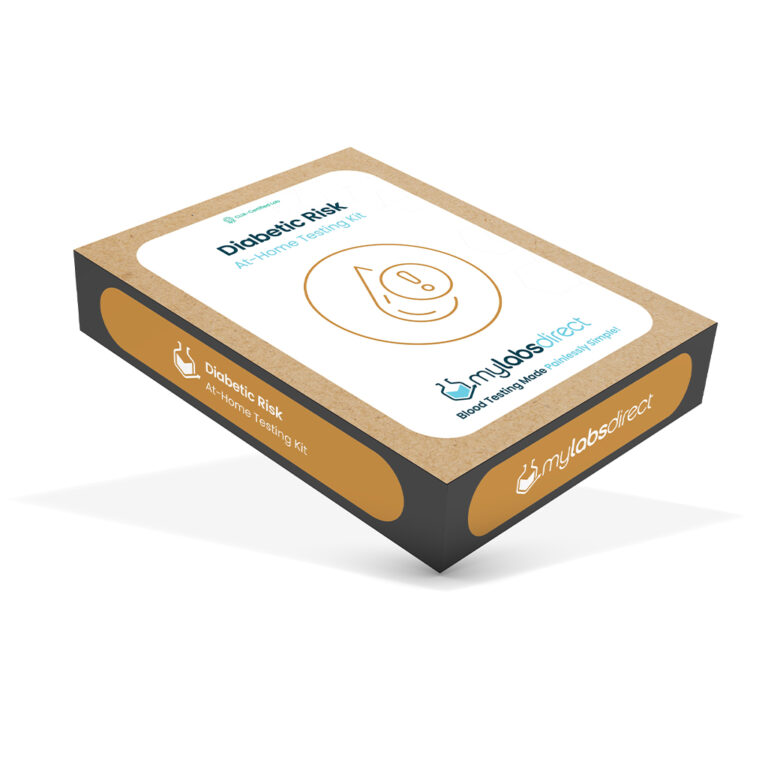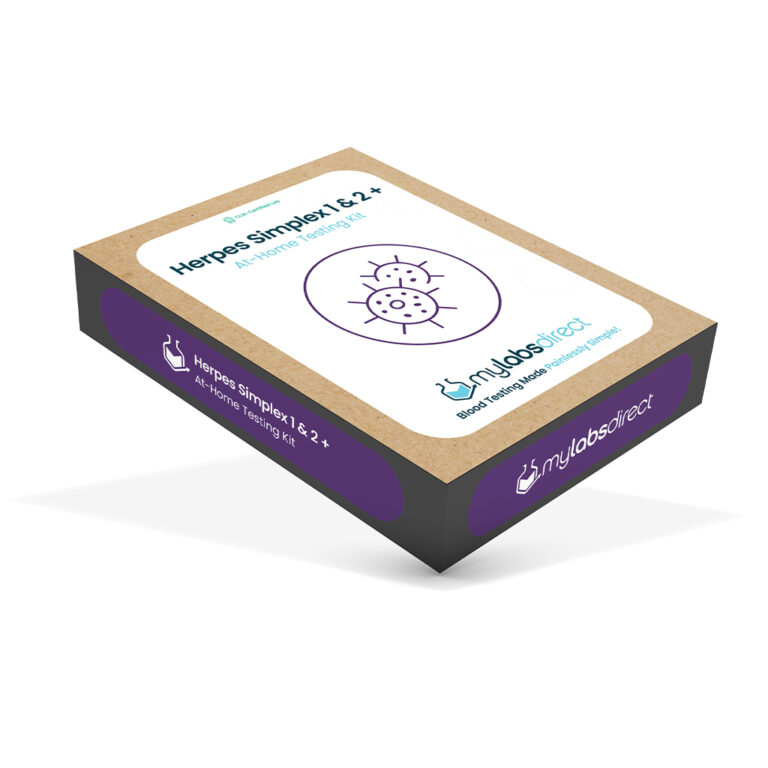
Who should take this test and why it’s essential:
Routine screening of inflammation markers is helpful for anyone managing their health, but testing is especially important for those who have a family history of stroke, heart disease, cancer and/or autoimmune disorders.
Inflammation Test Kit
Discover the MLD Inflammation Test:
For individuals with a family history of stroke, heart disease, cancer, or autoimmune disorders, testing for inflammation biomarkers is crucial. Stay proactive in managing your health by regularly screening inflammation markers and safeguard your well-being.
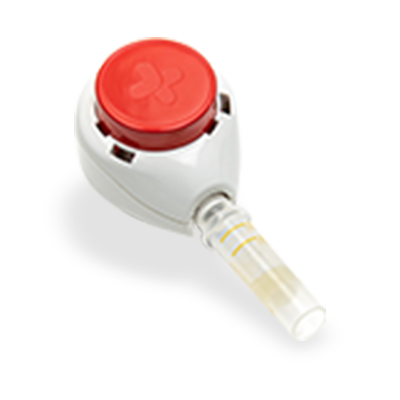
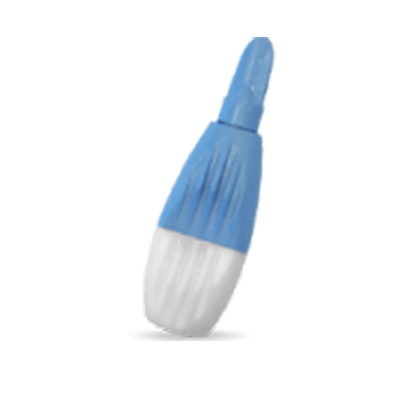
- FSA/HSA Accounts Accepted

Choose How You'd Like To Collect Your Sample
*Receive guidance on using our QuickDraw collection device effectively with a free virtual appointment

QuickDraw
Collection Method
Description
Our Quick Draw device makes sample collection easy, fast and pain free.
Benefits
- Painless
- Free virtual assistance with collection
- Complete blood results from a single microtainer
- Fast turn-around of results
- Free overnight return shipping
$124.99

Finger Stick
Collection Method
Description
For those looking for a low cost option, we offer a traditional Finger Stick collection method with a lancet collection device.
Benefits
- Lower cost, although with low to moderate pain
- Complete blood results from a single microtainer
- Fast turn-around of results
- Free overnight return shipping
$94.99
What this Test measures
Inflammation Panel
Inflammation is your body’s natural response to an injury, but what if you’re experiencing inflammation without injury? Inflammation biomarkers detected in your blood can indicate serious underlying conditions that may be caused by active infection, risk of heart attack, auto-immune disorders and cancer.
- hs-CRP (high sensitivity C-Reactive Protein)
- Vitamin D
hs-CRP, or High Sensitivity C-Reactive Protein, measures overall levels of inflammation in your body. Hs-CRP is one of the biomarker screens used to detect chronic inflammation, which can help identify those that are at high risk for stroke or heart disease.
Low hs-CRP – indicates you have low risk of heart disease.
High hs-CRP – indicates inflammation is present and you may have high risk of heart disease. Following up with a doctor is recommended.
Symptoms:
- Unexplained exhaustion
- Pain
- Headache
- Nausea, loss of appetite, indigestion
- Chills
- Fever
- Insomnia
Chronic inflammation has been linked to a deficiency in Vitamin D as scientists have identified a direct link between low levels of Vitamin D and high levels of inflammation. In several studies, Vitamin D has been shown to have a powerful anti-inflammatory effect, therefore, measuring Vitamin D levels provides an important biomarker to identify those at higher risk of chronic illnesses with an inflammatory component.
High Vitamin D Levels – While rare, high levels of Vitamin D are usually caused by large doses of Vitamin D supplements – not by diet or sun exposure. The buildup of Vitamin D in your blood can cause nausea, vomiting, weakness and frequent urination.
Low Vitamin D Levels – Deficiencies in Vitamin D can lead to low calcium absorption which causes weakened bones that become soft and brittle and prone to fractures as well as osteoporosis – a loss of total bone mass. Deficiency in Vitamin D can lead to joint pain and swelling and may contribute to the development of cancer, cardiovascular disease, type 2 diabetes, and autoimmune disorders.
Symptoms of Low Vitamin D:
- Fatigue
- Joint pain and swelling
- Muscle weakness, muscle aches or muscle cramps
- Mood changes like depression
How At-Home Testing Works

Step One
Select The Test That's Right For You
Collect your own lab sample anytime, anywhere through an easy-to-use test kit that’s shipped direct to you.
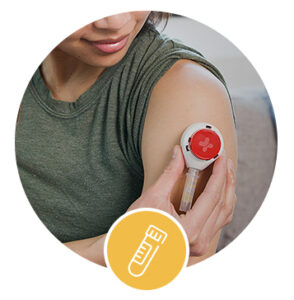
Step Two
Collect And Return Your Sample
Quickly collect your sample from the comfort of your home using our ground-breaking Quick Draw device or traditional finger stick lancet.

Step Three
View YourResults
Your lab results will be available on your personal online dashboard. Results are in an easy-to-understand educational format that helps you manage your health.

We are a REAL LAB,not a marketing company
All tests are processed through our university backed, CLIA certified labs and HIPAA secure results are delivered in real time. After your test is processed, we offer in-depth results to not only help you make important decisions about your health in conjunction with your treating physician or medical team, but solutions to any health issues that may be discovered during the process.
Questions? We Have Answers.
Supplemental vitamin D has been found to decrease the biomarkers of inflammation.
**We recommend that you consult with your healthcare provider regarding your test results and treatment.
- Autoimmune disorders, such as lupus.
- Exposure to toxins, such as pollution or industrial chemicals.
- Untreated acute inflammation caused by an injury or infection.
Chronic inflammation can cause an overproduction of inflammatory cytokines. As the body becomes overwhelmed by these molecules during chronic inflammation, the cytokines attack healthy joint and muscle tissue which results in pain, swelling, redness, and stiffness.
If you have been diagnosed with inflammation, your healthcare provider will guide you on the proper steps to reduce your inflammation, but in the meantime, you can take matters into your own hands to improve your health and reduce inflammation naturally. First, load up on anti-inflammatory foods and then cut back or eliminate inflammatory foods from your diet. Manage your blood sugar and exercise daily. Losing weight can reduce inflammation (and is a natural side effect of increased exercise and a focus on improving diet by eliminating inflammatory foods). Finally, managing stress can also have a positive impact on your inflammation reduction journey.
What foods cause inflammation?
- Red meat and processed meats, including bacon, hot dogs, lunch meats and cured meats
- Refined grains, including white bread, white rice, pasta and breakfast cereals
- Snack foods, including chips, cookies, crackers and pastries
- Sodas and other sweetened drinks
- Fried foods
What foods are considered anti-inflammatory?
- tomatoes
- olive oil
- green leafy vegetables, such as spinach, kale, and collards
- nuts like almonds and walnuts
- fatty fish like salmon, mackerel, tuna, and sardines
- fruits such as strawberries, blueberries, cherries, and oranges
**We recommend that you consult with your healthcare provider regarding your test results and treatment.
Please prepare to test first thing in the morning. Be sure to drink plenty of water before testing! Being well hydrated will help increase blood flow and improve the testing experience.
*Note: Do not test on a Friday, Saturday, Sunday, or Holiday. Your sample must be picked up, dropped at a dropbox location or brought to FedEx on the same day you test.
Your results can be easily shared with your healthcare provider, and in fact, we encourage you to share your data in order to obtain the treatment you might need. Contact us for a network of healthcare providers that specialize in treating inflammation.




